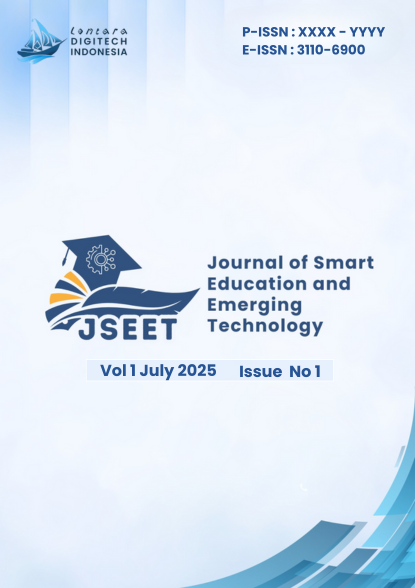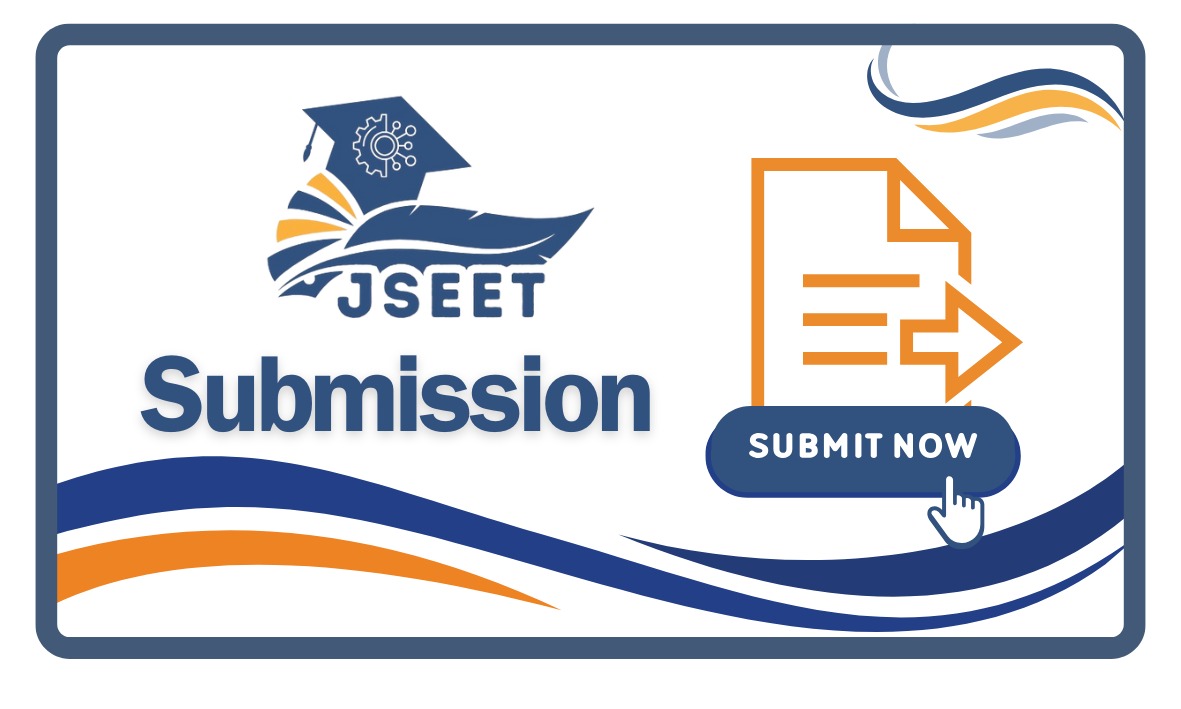Artificial Intelligence and Social Media on Academic Performance and Mental Wellbeing: Students' Perceptions of the Impact of the Era of Smart Learning
Keywords:
Artificial Intelligence, Academic Performance , Digital Literacy , Social Media , Mental WellbeingAbstract
Background/Context: The integration of artificial intelligence (AI) and social media has significantly transformed how university students learn in the digital era. AI supports personalized learning, improves material comprehension, and enhances productivity, while social media facilitates academic collaboration. However, both also present challenges, such as decreased learning independence, social pressure, and mental health concerns.
Objective/Purpose: This study aims to analyze the impact of AI and social media use on students’ academic performance and mental well-being.
Method: A quantitative cross-sectional design was employed. Data were collected using a Likert-scale questionnaire completed by 91 active university students. Descriptive statistics (mean, median, mode, standard deviation) and correlational analysis using Pearson’s test, along with linear regression, were conducted with the support of Jamovi software.
Results: The findings reveal that AI positively contributes to learning effectiveness, motivation, and personalized content, while also reducing academic stress. However, excessive use may lower students’ learning independence. Meanwhile, social media promotes academic and emotional interaction, but high-intensity use tends to increase anxiety, social pressure, and decreased concentration in learning.
Conclusion: AI plays a strategic role in improving educational quality, whereas social media requires mindful management to prevent negative effects on students’ mental well-being. The study recommends digital literacy and time management strategies to maintain a healthy balance of technology use in higher education well-being.
Downloads
References
Binns, A., & Parker, G. (2021). Artificial Intelligence in Mental Health: The Promise and the Pitfalls. Journal of Mental Health & Technology.
Chen, X., & Xie, H. (2021). The Role of Artificial Intelligence in Academic Performance: A Study of Adaptive Learning Systems. Educational Technology Research and Development.
Erwin, E., Pasaribu, A. W., Novel, N. J. A., Thaha, A. R., Adhicandra, I., Suardi, C., & Syafaat, M. (2023). Transformasi Digital. PT. Sonpedia Publishing Indonesia.
Fauzi, A., & Hasanah, A. (2024). Landasan Pendidikan Karakter dalam Pandangan Teori Perkembangan Moral Kognitif.
Fitri, L. N., Elfina, I., Santoso, S. D., & Rosmaharani, S. (2023). Self-Efficacy With Bullying and Cyberbullying Prevention Efforts in Supporting Implementation SDGs: Literature Review. Jurnal Kesehatan Komunitas Indonesia, 3(3), 363–377. https://doi.org/10.58545/jkki.v3i3.221
Gleneagles, D. B., Larasyifa, F., & Fawaiz, R. (2024). Peran Teknologi Kecerdasan Buatan (AI) dalam Meningkatkan Efisiensi Proses Belajar dan Pembelajaran. Madani: Jurnal Ilmiah Multidisiplin, 2(5), 107–116.
Hidayat, M. (2021). Literasi digital dan dampaknya terhadap kesejahteraan psikologis mahasiswa. Jurnal Psikologi Pendidikan, 13(3), 211–225. https://doi.org/10.24036/jpp.v13i3.2021
Imran, M., Almusharraf, N., Abdellatif, M. S., & Abbasova, M. Y. (2024). Artificial Intelligence in Higher Education: Enhancing Learning Systems and Transforming Educational Paradigms. International Journal of Interactive Mobile Technologies, 18(18), 34–48. https://doi.org/10.3991/ijim.v18i18.49143
Isma, A., Fakhri, M. M., Fardan, M., Adistia, A. Z., & Fadhilatunisa, D. (2024). Pengaruh Model Blended Learning Terhadap Perkembangan Kognitif Mahasiswa. Jurnal Mediatik, 6(1), 1–7. https://doi.org/10.59562/mediatik.v6i1.1346
Juwita, E. P., Budimansyah, D., & Nurbayani, S. (2015). Peran media sosial terhadap gaya hidup siswa. Sosietas: Jurnal Pendidikan Sosiologi, 5(1).
Kusuma, H., & Pratama, R. (2022). Media sosial sebagai sarana kolaborasi akademik mahasiswa. Jurnal Pendidikan Dan Media Digital, 4(1), 55–70. https://doi.org/10.31258/jpmd.41.55-70
Maula, S. R., Aprillian, S. D., Rachman, A. W., & Azman, M. N. M. (2024). Ketergantungan Mahasiswa Universitas Jember Terhadap Artificial Intelligence (AI). ALADALAH: Jurnal Politik, Sosial, Hukum Dan Humaniora, 2(1), 01–14.
Oktavianus, A. J. E., Naibaho, L., & Rantung, D. A. (2023). Pemanfaatan Artificial Intelligence pada Pembelajaran dan Asesmen di Era Digitalisasi. Jurnal Kridatama Sains Dan Teknologi, 5(02), 473–486.
Purwanto, M. R. (2024). Pengaruh Media Sosial Terhadap Kesejahteraan Mental Mahasiswa: Studi Kasus di Fakultas Ilmu Agama Islami Universitas Islam Indonesia. At-Thullab: Jurnal Mahasiswa Studi Islam, 6(1), 1485–1486.
Putri, A. R., Suryana, D., & Ramadhan, T. (2020). A Digital Academic Information System to Detect Students at Risk of Dropping Out. Journal of Information Technology and Education, 13(3), 215–222.
Shameli, R., & Lankarani, K. B. (2020). The impact of Artificial Intelligence on mental health: A review of the benefits and concerns. International Journal of Human-Computer Studies.
Sitorus, M., & Murti, M. D. F. (2024). Analisis Pengaruh Penggunaan Artificial Intelligence Pada Pembelajaran di Cyber University. Innotech: Jurnal Ilmu Komputer, Sistem Informasi Dan Teknologi Informasi, 1(2), 90–101.
Syifa, K. (2024). Dampak Penggunaan Media Sosial Terhadap Kesehatan Mental Generasi Z. IJBITH Indonesian Journal of Business Innovation, Technology and Humanities, 1(1), 140–149.
Wahyuni, H. (2024). Transformasi Pendidikan: Peran Teknologi Digital dalam Mendukung Efektivitas Pelaksanaan Kurikulum Merdeka Belajar di Era Digitalisasi. Pendas: Jurnal Ilmiah Pendidikan Dasar, 9(2), 5675–5688.
Weidman, J. C., & Kirtley, A. (2021). The Effects of Social Media Use on Academic Performance and Mental Health Among University Students. Journal of Educational Psychology.
Wibowo, S. (2020). Psikologi Teknologi Pendidikan: Peluang dan Tantangan. Prenadamedia Group.








 Email :
Email : 
